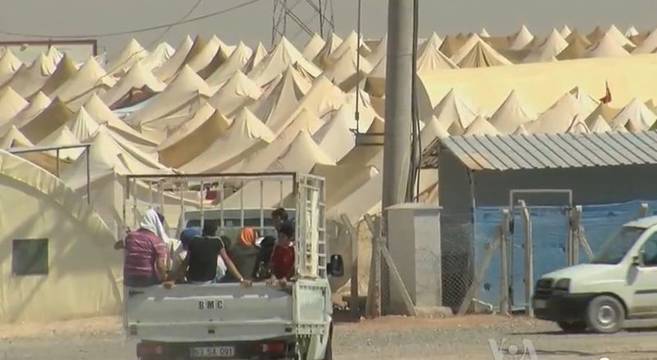
Welcome to a lunch seminar co-hosted by the Syrian Peace Action Centre (SPACE) and PRIO, on establishing rights-based guiding principles to discuss reconstructing Syria.
Background
The war in Syria is far from over. The recent escalation by the Syrian regime and its ally, Russia, against civilians in Eastern Ghouta, and the Turkish military offensive against Kurdish-held Afrin in the north, has engendered more suffering and destruction in an increasingly entangled matrix of regional and international players. What does it mean to engage in discussions about reconstruction while civilian populations are being bombed?
Starting in 2017, the international community has begun to tackle the issue of reconstruction in Syria while grappling with the difficult question of how this conversation should play out. In April, the EU will host its second 'Supporting the future of Syria and the region' conference. Reconstruction will be on the agenda.
International organizations such as the UNHCR, the UNDP and UNESCO, have already partnered with the Syrian government on several projects of rehabilitation of civilian infrastructure and the removal of debris and solid waste in areas where the regime has regained control like Homs and Eastern Aleppo. These projects have been criticized by civil society actors for contributing to demographic changes by preventing people from returning to their homes and claiming their property rights.
Discussing reconstruction before the end of a conflict is a morally and conceptually difficult endeavor. The twofold objective of this seminar is to problematize the approach of the international community, while acknowledging gaps in the current dominant conversation, but also to reflect on the ethical issues raised by activist and academic participation in policy discussions on Syrian reconstruction. The seminar aims to address the following questions:
- When is the good time to start discussing reconstruction?
- Why should Norway, the EU and the international community help rebuild Syria, if at all?
- How can we ensure a reconstruction process that preserves the property rights and cultural heritage of the displaced and returnees?
- Who should be involved and consulted in the process?
- How can the post-conflict reconstruction be established on premises of accountability and social justice?
- What are the right questions to ask to which stakeholders and who should assume the role of watchdog?
- What is the role of academics, researchers, and policy makers in this discussion?
Panelists
- AlHakam Shaar, Academic and writer from Aleppo, fellow of the Aleppo Project
- Samer Frangie, Assistant Professor in Political Studies, American University of Beirut
- Kristin Bergtora Sandvik, Research professor in Humanitarian Studies, PRIO, Professor of Sociology of Law, University of Oslo





